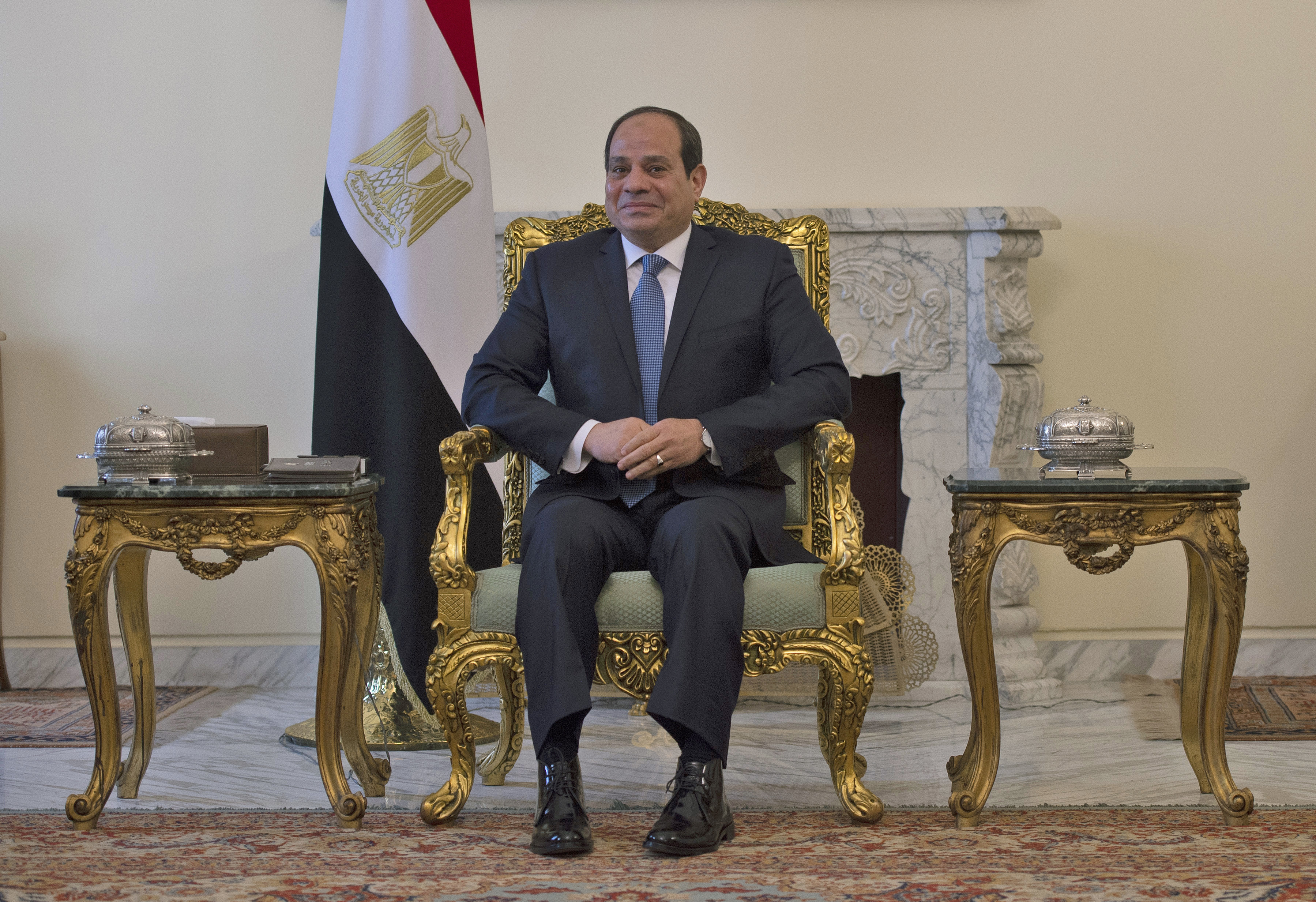
Egypt's el-Sissi says most painful of reforms is over
CAIRO (AP) — Egypt’s president said Wednesday that the most painful part of his ambitious economic reform program was over, but cautioned there was still some way to go before it’s completed.
The reforms included floating the currency, substantial cuts in state subsidies on basic goods, and introducing a wide range of new taxes. The measures led to a significant rise in prices and services, something critics say has hurt the poor and middle class the hardest.
The reforms were agreed on with the International Monetary Fund in exchange for a $12 billion loan.
In televised comments aired live, el-Sissi said Egypt has gone through the worst of the fallout from the reforms. “Not too much is left and it won’t be harsher than what we had already gone through. We are determined to finish it.”
El-Sissi thanked Egyptians for “enduring the harsh and difficult (economic) measures,” something that he has often done since the reforms began in 2016 with the floatation of the currency that cost the Egyptian pound more than half of its value.
His thanks and implicit warning that more reforms were to come appeared designed to prepare Egyptians for a widely anticipated wave of price rises this year that could include fuel and electricity.
He said his government had no choice but to embark on the reform program.
“Anything else would have led to the collapse of the state,” he said in an address marking Police Day, a national holiday that falls on Jan. 25.
Years of political turmoil and violence following a 2011 uprising that toppled the 29-year regime of autocrat Hosni Mubarak has crippled the economy, keeping foreign tourists and investors out and reducing productivity. El-Sissi’s reforms and improved security have improved economic indicators, winning praise from Cairo’s Western backers but they are yet to filter down to most Egyptians.
Removing state subsidies is something that el-Sissi’s predecessors could not do because of fears of unrest. The late President Anwar Sadat attempted in 1977 to remove subsidies on bread, a main staple for Egyptians, sparking deadly street riots. He backed down. In comparison, el-Sissi’s reforms have fueled popular discontent but that never boiled over onto the streets.
Police have brutally dealt with the rare street protests that took place under el-Sissi, in office since 2014. Demonstrations also are virtually banned under a 2013 law, with offenders facing up to five years in prison if convicted.
The Western Journal has not reviewed this Associated Press story prior to publication. Therefore, it may contain editorial bias or may in some other way not meet our normal editorial standards. It is provided to our readers as a service from The Western Journal.
Truth and Accuracy
We are committed to truth and accuracy in all of our journalism. Read our editorial standards.
Advertise with The Western Journal and reach millions of highly engaged readers, while supporting our work. Advertise Today.












